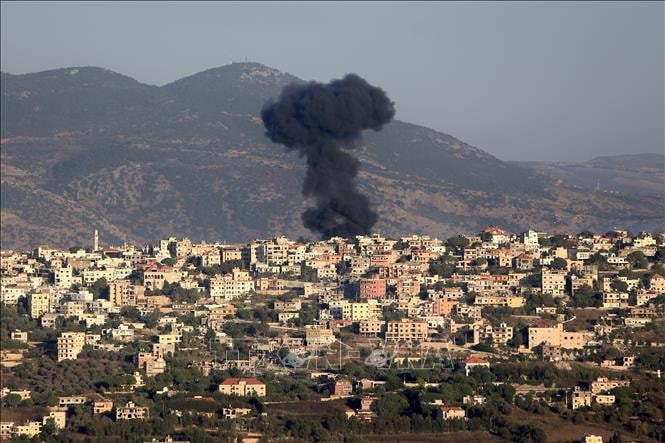Behind-the-scenes negotiations involving Iran have prevented a larger conflict between Israel and Hezbollah. Tehran has become a behind-the-scenes player in ceasefire negotiations in Gaza.

According to the news site thenationalnews.com (UAE) on August 27, the conflict between Israel and Hezbollah in recent months has seen increased tensions with a series of missile and drone launches targeting each other, culminating in a "tit-for-tat" attack on August 25. However, despite this escalation, a full-scale war has not occurred. So what has prevented the conflict from escalating between the two sides? The answer lies in secret negotiations with the participation of Iran, an important factor in keeping the situation from getting out of control.
Iran's role in the negotiations
Iran, although not an official participant in the talks, has played a key role behind the scenes. According to Western and Arab political and diplomatic sources, weeks of secret talks involving Tehran have been underway, focused on preventing a wider conflict. These discussions have become particularly intense following the assassinations in Tehran of a senior Hezbollah military commander in Lebanon and a Hamas political leader.
Tehran stepped up talks with Arab mediators in Gaza ceasefire talks in the immediate aftermath of the assassinations, with the main goal being to contain Hezbollah’s response and prevent the conflict from spreading. Although no formal agreement was signed, the parties reached tacit understandings on refraining from military action, which helped maintain the temporary peace, sources said.
The role of regional intermediaries
The ceasefire negotiations are not limited to Iran and Hezbollah, but also involve Egypt, Qatar and the United States. These mediators have facilitated several rounds of indirect talks between Hamas and Israel, with the aim of ending the spreading conflict. Egypt and Qatar have played a key role in communicating with Tehran, seeking to ease tensions in the region.
Another important factor was the intervention of Egypt and Qatar to ease the pressure on the ceasefire talks. Egypt, which has had tense relations with Iran for years, showed the flexibility to engage directly with Tehran. This marked a shift in Cairo’s foreign policy and contributed to preventing the conflict from escalating.
Amid ceasefire negotiations, Hezbollah has launched several major attacks on Israel this August, with hundreds of missiles and drones. However, the response has been measured and limited. Hezbollah leader Hassan Nasrallah later declared that their response was complete and that the conflict would not escalate further, suggesting that Hezbollah is well aware of the regional political situation and does not want to push the conflict out of control.
Israel, on the other hand, has carried out preemptive strikes but also does not want to lead to a full-scale war. Coordination between regional mediators and Tehran has helped restrain both sides, preventing the situation from getting worse.
One factor that cannot be ignored is the internal and international pressure on both Hezbollah and Israel. In Lebanon, the tense political situation combined with the economic crisis has put enormous pressure on Hezbollah. Prolonging the conflict will not only cause heavy damage to Lebanon but also weaken Hezbollah’s position domestically. On the other hand, Israel also faces international pressure to contain the conflict and avoid escalation.